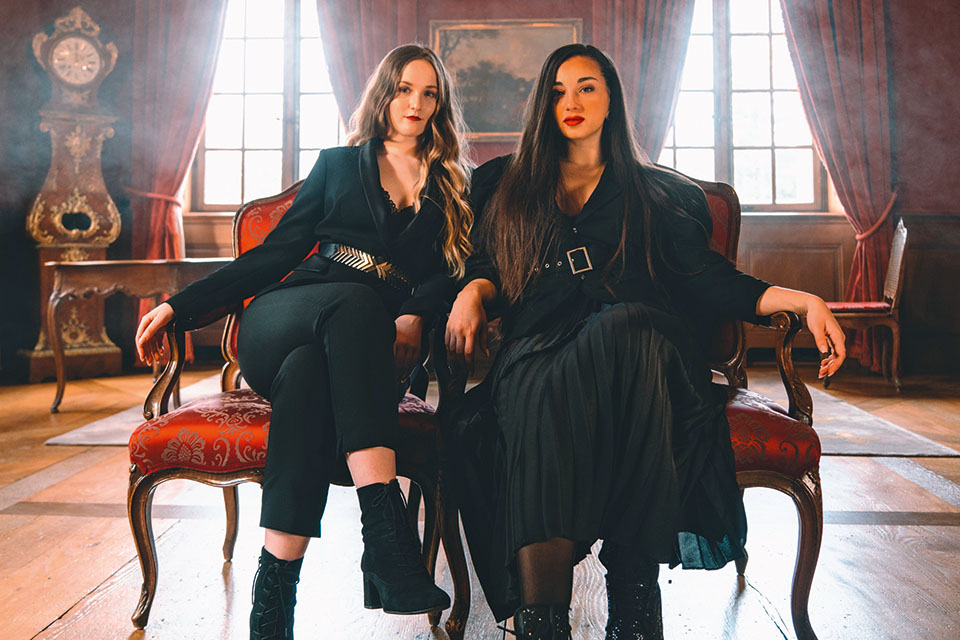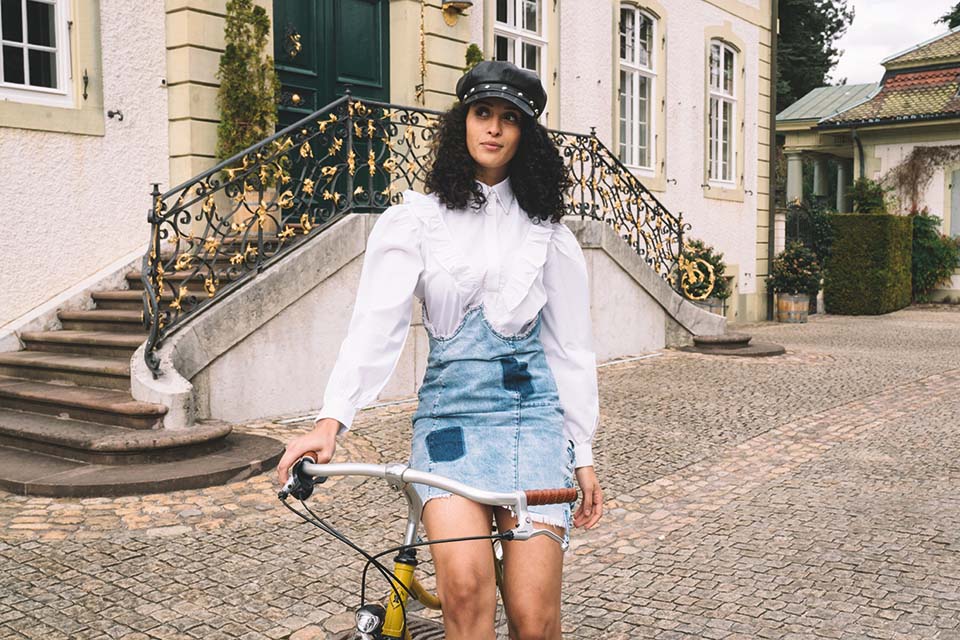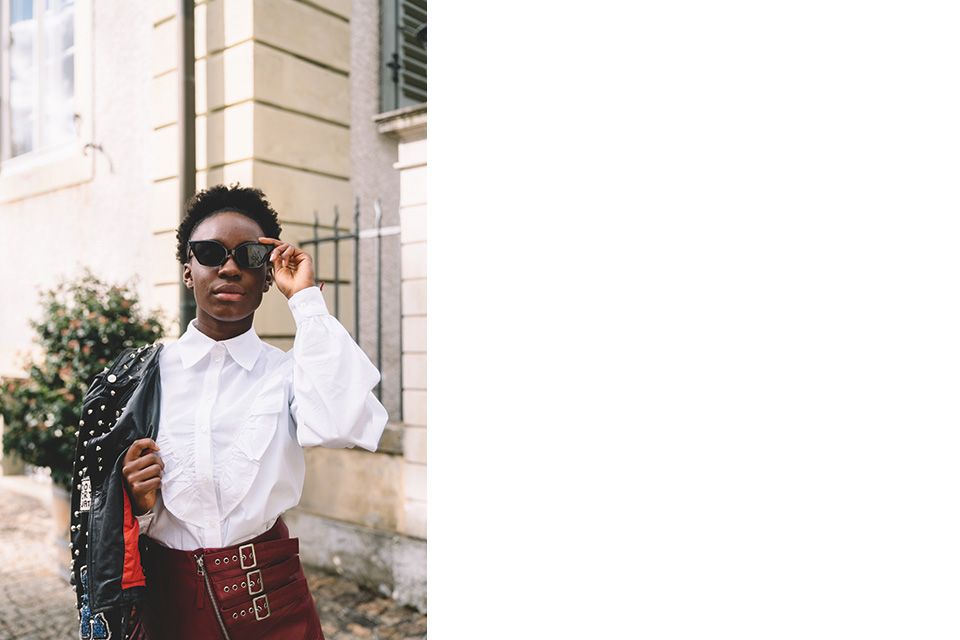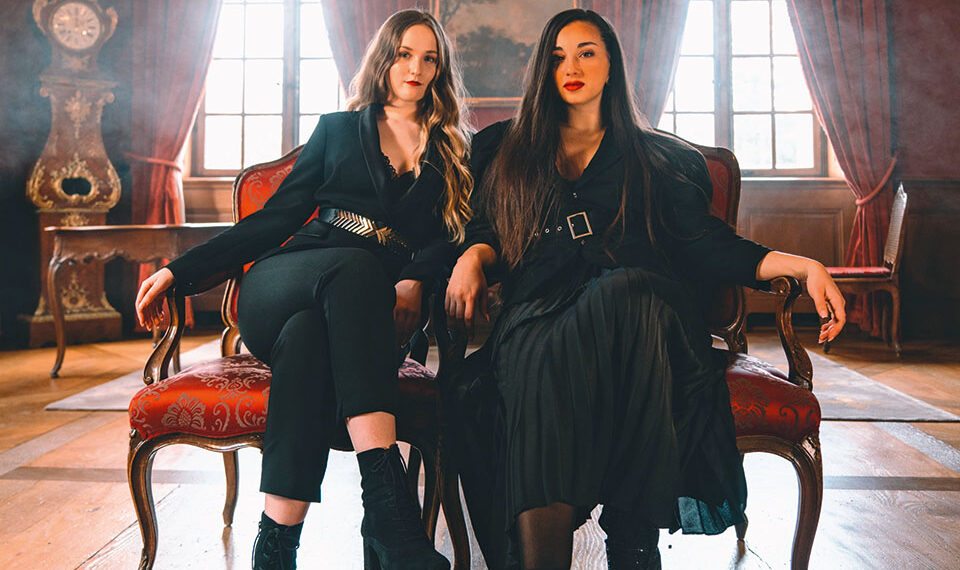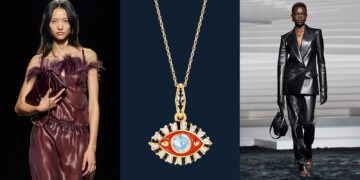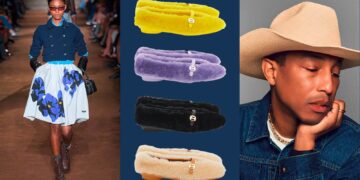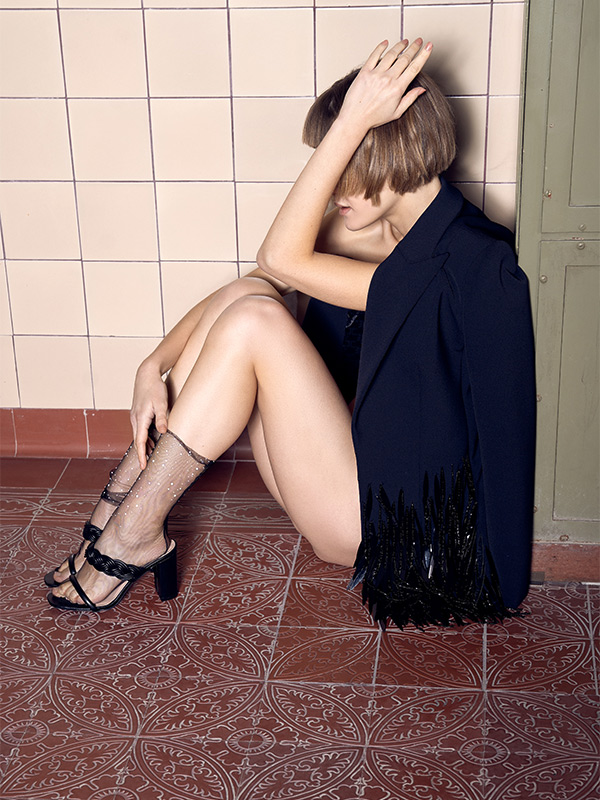People and nature have to suffer for cheap clothing. Emma Kistemaker and Lorena Madarena no longer wanted to accept this situation and quickly founded their own fashion label. With Manusia, they recently won the Un-Dress Fashion Award, which honors sustainable fashion companies. Time to get to know the two Basel women better.
FACES: What exactly prompted the creation of Manusia?
Emma Kistemaker & Lorena Madarena: We are both fashion enthusiasts and were customers of fast fashion brands ourselves. Through various seminars at university, we finally became aware of the fatal dark side of the fashion industry. We were appalled by the conditions under which the workers on the cotton plantations, in the factories and factories have to live, not to mention the enormous negative impact that fast fashion has on the environment. Our trip to Indonesia further confirmed our horror. That’s why we first tried to find fashion labels in Switzerland that produce sustainably and fairly and also match our style of clothing. Unfortunately, we didn’t find what we were looking for, so we decided to set up our own fashion label.
F: What was the biggest challenge in starting your own fashion label?
EK & LM : The knowledge we gained at university provided us with a basic economic foundation, for example in the implementation of business models, the marketing of products and corporate financing. However, neither of us had any experience in the textile industry, which was the biggest challenge for us. So we had to acquire the knowledge of how a garment is produced from the raw cotton plant through various processing stages to the final prototype. Neither of us had any background knowledge about the design of garments. We therefore had to get to grips with different fashion design concepts, create virtual and manual designs, develop patterns with our seamstress, define measurements and finally produce our prototypes.
F: Manusia means “man” in Indonesian. How did you come up with this name, and what values are associated with it for you?
EK & LM: We became personally aware of the working conditions of textile workers on our trip through Indonesia. The urge to make a difference by taking matters into our own hands has become even stronger. We couldn’t understand how people could be made to work in such inhumane conditions. Everyone deserves to work under fair working conditions and for fair wages. In addition, we as humans have a responsibility to adapt our behavior so that the planet and its resources are not exploited so that future generations can use them. Fashion should be human and feel human.
F: What are the difficulties in creating sustainable fashion?
EK & LM: The biggest challenge was to find a producer and a factory that produces sustainable materials such as organic cotton and also guarantees the workers fair working conditions such as fair wages, insurance cover, the right to vacations and breaks and a safe infrastructure.
F: You produce your collections in Turkey, why?
EK & LM: We have found a production facility and manufactory in Turkey that reflects all our values and can also prove this with certificates. Our partners use GOTS-certified organic cotton, belong to the Fair Wear Foundation and are certified for Quality For Women At Work. Izmir is a large location for organic cotton, and the fact that production and processing take place within the same region means that we can ensure a high level of transparency throughout the entire value and supply chain. We visited our partners in Izmir in 2019 and this strengthened our conviction that we had chosen the right one.
F: You support several organizations and projects. What are they?
EK & LM: As we have our clothing delivered to Switzerland from Turkey, we would like to offset the emissions generated by the delivery by investing in projects such as reforestation in Indonesia. As we are also committed to human rights, we produced accessories from residual materials in 2020. In the spirit of the Black Lives Matter movement, we donated the proceeds to an organization in Basel that is committed to the Black community.
F: You have just won the Un-Dress Fashion Award, where you were not only at the top of the public voting, but also at the top of the jury. What does this victory mean to you?
EK & LM: This victory has shown us that our community as well as professional players in the fashion industry believe in our values and also see the potential to promote awareness of this issue and to deal with it even further in the future, whether as a brand or from the consumer perspective. It also shows us that consumer behavior is in a phase of change, and we are pleased to see how positive the response to Manusia has been. It encourages us as entrepreneurs to push ahead with even more innovations.
F: How has your approach to fashion and clothing changed over the years?
EK & LM : Our consumer behavior has changed enormously in recent years, not only in terms of fashion, but also in general. While we used to only buy from well-known fashion labels without informing ourselves about the origin and materials, the situation is different today. We judge every purchase from a different perspective, and every purchase decision is based on different criteria that either motivate us to buy or prevent us from doing so. When it comes to fashion, we have developed a great passion for second-hand shopping, which is always underlined by a unique experience.
F: How does the consumer expose greenwashing?
EK & LM: Sustainable corporate measures are only successful when they encompass the entire value chain and the word “green” no longer needs to be emphasized, but is a natural part of everyday life and work. With certifications, for example, brands can also show their customers that they are taking responsibility. These create trust and ensure that the measures are not based on empty promises.
F: What circumstance in the fashion industry shocks you the most?
EK & LM: The textile sector is the second largest polluter in the world after oil production. The 52 collections produced annually by fast fashion labels have a fatal impact on textile workers and the environment. While the fashion industry leads to a globally devastating waste and exploitation of resources through mass production, pesticides are used in the production of textiles, which pose an enormous risk to workers’ health. In addition to these catastrophic conditions, the textile industry is also one of the most underpaid sectors in the world. The proportion of women in the textile industry is 85 percent!
F: What bothers you about the fashion industry, and what positively surprises you about it?
EK & LM: It bothers us that some major fashion labels do not rethink their business activities and continue to profit at the expense of others. Instead of innovative solution concepts, only greenwashing activities continue to be pursued. On the other hand, we are pleased to see that consumers are becoming increasingly aware of the issue, demanding transparency and companies are entering the market with innovations to meet new customer needs.
F: Where does the fashion industry need to tackle first?
EK & LM: Fashion labels must align their business models in such a way that they are sustainable for people and the environment. There should be neither overproduction and waste nor underpaid wages and dangerous working conditions. It is important to ensure a sustainable value chain and a transparent supply chain.
F: Are trends still in keeping with the times?
EK & LM: It’s hard to imagine our society without trends. We all love trying out ‘new’ clothes – but this is also made possible on a more sustainable level through clothes swaps between friends and second-hand purchases.
F: Sustainability is a huge term. How do you define this for yourself?
EK & LM: For Manusia, sustainability means shaping value creation in such a way that it is sustainable for future generations and is not created at the expense of third parties. This means that we conceptualize the design in such a way that minimal resources are used, no waste is produced and the longevity of the clothing is ensured. This also means that safety, fair working conditions and transparency are paramount for the parties involved.
F: Can you understand why other labels find it so difficult to produce sustainably?
EK & LM: Profit is the main focus for most fashion labels. This is achieved through rapid mass production, but at the expense of workers and the environment. The use of pesticides means that the fabrics can be produced more quickly, and in order to sell the collection as quickly as possible, the workers work countless hours of overtime or even child labor for underpaid wages and in unsafe building infrastructures.
F: How and from what must an item of clothing be produced so that we can call it sustainable and wear it with a clear conscience?
EK & LM: Textiles should be produced in such a way that they do not harm people or nature. We recommend textiles that are produced and dyed on a natural basis. However, there is also a major focus on recycling. For example, there are materials left over from production, “deadstocks”, which are considered waste products but can in principle be recycled for new products. Seals of approval are good indicators that you are not a victim of a greenwashing initiative and can make a purchase with a clear conscience.
F: In your first collection, you focused on four pieces that everyone should have in their closet. How did you come up with this idea and how are you developing it further?
EK & LM: This idea is part of a sustainable design. We didn’t just want to produce pieces that you wear occasionally and then end up in the clothes collection again. Instead, we opted for key pieces that are often worn, can be combined in many different ways and thus prevent waste.
F: What would you like to get better at?
EK & LM: We want to develop innovative business models that deviate from the linear production model and promote sustainability at an even higher level, for example through circular models.
F: What’s next for Manusia?
EK & LM: We are currently finalizing the 2021 summer collection, which will be launched on 29. May will be published. So you can look forward to our new campaign.
Un-Dress Fashion Award
2021 marks the tenth anniversary of the Un-Dress project of the St. Gallen university association Oikos. Un-Dress has been campaigning for sustainable fashion and organizing events since the beginning,
Talks and, most recently, this year’s Un-Dress Fashion Award Show to draw consumers’ attention to the urgency of sustainability. As part of the
Twelve Swiss fashion labels took part in the 12th Un-Dress Fashion Awards, which the Basel duo Manusia ultimately won.
Manusia’s tips for sustainable shopping
Firstly, make a conscious effort to only buy things that you really need. There are certain items of clothing that can be creatively transformed into other outfits. Our “dress” from Manusia is a good example, as it becomes a new outfit thanks to the combination of the blazer and the skirt.
Secondly, support local fashion labels by buying from them rather than big brands. With smaller companies, it is easier to understand where the products come from and how the materials have been processed.
Thirdly, swap your clothes, buy from second-hand stores or be creative and turn your clothes into something new.
You can find more tips from Manusia at @manusia.official
